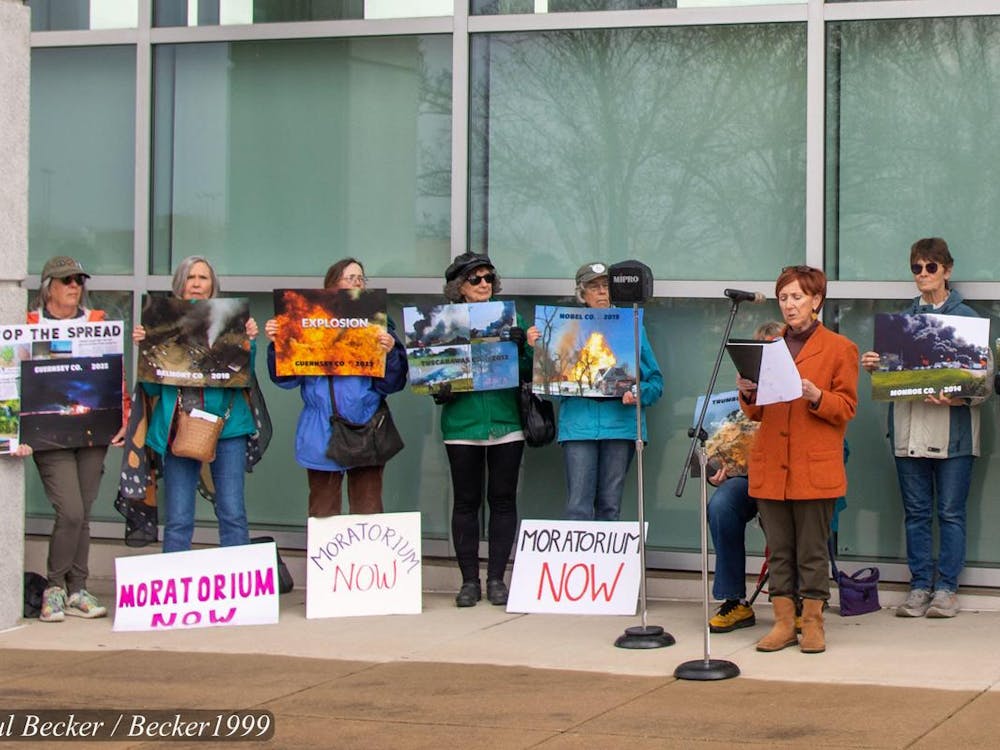Are you overwhelmed by the course list and uncertain what to take next semester? If you responded “yes” and “yes,” then this condensed list of major-friendly environment and sustainability courses might be just what you’re looking for:
BUS 217: Sustainable business solutions
First up is a never-before-taught course at Miami University. Created to fulfill part of the signature inquiry component of the new Miami Plan as well as the global inquiry component of the old Miami Plan, BUS 217 is friendly to students from all majors and years.
The course will focus on how the United Nations’ 17 sustainable development goals are intertwined with the world of business, hence the “17” in its course number. This interdisciplinary aspect of BUS 217 is seen in its content and the professors co-teaching it next semester.
Economics professor Janice Kinghorn and finance and business law professor Chelsea Green will use their distinct backgrounds to enhance the versatility of this course.
“This course will teach students to have a more complex idea of business as part of the solution, not just the problem,” Kinghorn stated.
GLG 121: Environmental geology
“Environmental geology” serves as a survey of introductory geology while emphasizing the relationship between humans and their geological environment. This course can be taken to fulfill either the natural science or quantitative literacy Miami Plan requirements with an optional lab experience, and is also great for anyone interested in the multi-faceted relationship between humanity and geology.
Maija Sipola, a geology professor who has consistently taught GLG 121, said this course dives into questions that revolve around relevant applications of geology to real-world events.
“What causes a hurricane and why do we have them during a certain time of the year? Is it true that they’re potentially getting worse?” she said as examples.
IES/ENG/JRN 429: Environmental communication
Similar to the solution-oriented aspect of BUS 217, “environmental communication” offers solutions to real-life environmental problems through the power of writing and effective communication.
Enjoy what you're reading?
Signup for our newsletter
Taught by Michele Simmons, an English professor affiliated with Miami’s Institute for the Environment and Sustainability, this course will reflect an interdisciplinary approach to communicating environmental concepts. This approach won’t just be discussed in the classroom, but will also be acted upon through case projects with actual clients.
This course is great for any student wanting to take a proactive approach to not only learning about effective environmental communication, but also enacting it in the real world.
GEO/IES 222: Sustainable Systems & Society
“Sustainable Systems & Society” is another co-taught course and is being offered for the first time this spring as a way for students to get introduced to both geography and sustainability at Miami. This course can fulfill part of the sustainability signature inquiry component for the new Miami Plan or the social science requirement for the old Miami Plan.
Co-taught by environmental science and policy professor Sarah Dumyahn and geography professor Susan Jakubowski, this course will provide students with a deep dive into how sustainable issues are intertwined with geography.
Any student vaguely interested in either or both, geography and sustainability will be a perfect fit for this course.
BIO 155: Field botany
“Field botany” is a hands-on, tangible course that allows students to learn broad botanical concepts and about botany on a local level. This course can fulfill the Miami Plan’s lab, natural science and biological science requirements.
David Gorchov, a biology and environmental science professor who spearheads this course, states that students “will learn how to recognize 50-60 local plant species” as well as “other plant species that they will see elsewhere in the world as they go about their lives.”
This class is an excellent choice for students who want to expand their knowledge base on the world around them, especially on a local level.
IES 211: Energy and Policy
This is a course focused on the interrelationship between energy policy and sources — both renewable and non-renewable. While it is not specifically linked to the Miami Plan, it can be used to fulfill requirements for students in environmental science and sustainability co-majors.
Also taught by Sarah Dumyahn, she said this class works to uncover how there’s “not necessarily a simple and straightforward switch that can be made within the existing structure around fossil fuels.”
These courses have the power to, as Gorchov describes “field botany,” “make a student’s green world much richer” with knowledge.




